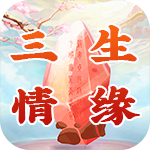1. 求50句生活英語句子
I love my family and friends.
Every day to see beautiful flowers, so my life is full of hope.
Sometimes, the pressure of money would make me breathless.
I hope not too many everyday jobs can be.
Supermarket products too expensive now, go once a month's wages for less part.
Parenting me, I grew up and now want to repay them.
I'm not handsome, but I also have confidence.
I am a happy person, full of hope of our lives.
Not easy to be a good person, but you can not let yourself become a villain.
To each his own choice to pay the price.
Future long way to go, do not often mention the sad words.
2. 求日常生活用的英語句子
1. After you.你先請。
這是一句很常用的客套話,在進/出門,上車得場合你都可以表現一下。好象現在女士不愿意你這麼做,特別是那些女權主義者,我還記得這麼一段話:一個女士對一個讓她先行的男士說:You do this because I am a woman?那個男士回答說:I do this not because you are a woman but because I am a man!I love this guy! 2. I just couldn't help it.我就是忍不住。
想想看,這樣一個漂亮的句子可用于多少個場合?下面是隨意舉的一個例子: I was deeply moved by the film and I cried and cried. I just couldn't help it. 太棒的句子了,我愛死它了。 3. Don't take it to heart. 別往心里去,別為此而憂慮傷神。
生活實例:This test isn't that important. don't take it to heart. 安慰人的超級句子。 4. We'd better be off.我們該走了。
It's getting late. we'd better be off . 5. Let's face it. 面對現實吧。常表明說話人不愿意逃避困難的現狀。
參考例句:I know it's a difficult situation. let's face it, ok? 很棒啊,年輕人犯錯誤,上帝都會原諒,remember?但是犯了錯誤,你必須面對他,let's face it,或者是:let's face the music. 6. Let's get started.咱們開始干吧。勸導別人時說:Don't just talk. let's get started. let's get started. let's start. let's do it right now. let's hit sth. let's rock&roll. let's put our hands on sth. 7. i'm really dead.我真要累死了。
坦誠自己的感受時說:after all that work, i'm really dead. 8. I've done my best.我已盡力了。 這句話,很有用,失敗有時難免,但是你要是可以說,I've done my best.Or I spare no efforts.就不必遺憾,畢竟,Man supposes,god disposes. 9. is that so?真是那樣嗎?常用在一個人聽了一件事后表示驚訝、的懷疑。
10. don't play games with me!別跟我耍花招! 11. I don't know for sure.我不確切知道。Stranger: Could you tell me how to get to the town hall? Tom: I don't know for sure. Maybe you could ask the policeman over there. 12. i'm not going to kid you.我不是跟你開玩笑的。
Karin: You quit the job? you are kidding. Jjack: I'm not going to kid you. i'm serious. 13. that's something. 太好了,太棒了。 A: I'm granted a full scholarship for this semester. B: Congratulations. That's something. 14. brilliant idea!這主意真棒!這主意真高明! 15. do you really mean it? 此話當真? Michael: Whenever you are short of money, just come to me. David: Do you really mean it? 16. you are a great help.你幫了大忙 17. I couldn't be more sure. 我再也肯定不過。
18. I am behind you.我支持你。 A: Whatever decision you're going to make, I am behind you. 19. I'm broke.我身無分文。
I am penniless. 20. mind you!請注意!聽著!(也可僅用mind。) 模范例句:Mind you! He's a very nice fellow though bad-tempered. 21. you can count on it.你盡管相信好了,盡管放心。
A: Do you think he will come to my birthday party? B: You can count on it. 22. I never liked it anyway.我一直不太喜歡這東西。當朋友或同事不小心摔壞你的東西時就可以用上這句話給他一個臺階,打破尷尬局面:Oh, don't worry. I'm thinking of buying a new one. I never liked it anyway. 23. that depends.看情況再說。
(on sth) 例:I may go to the airport to meet her. but that depends. 24. congratulations.恭喜你,祝賀你。 25. thanks anyway.無論如何我還是得謝謝你。
當別人盡力要幫助你卻沒幫成時,你就可以用這個短語表示謝意。 26. it's a deal.一言為定 Harry: Haven't seen you for ages. Let's have a get-together next week. Jenny: It's a deal 電影里經常聽到,It's a deal,that is a good deal.或是兩個人打算達成某個協議或是做成某個生意會說:deal? deal!。
3. 用英語表達生活方面變化
英語表達生活變化:
Our daily life has changed dramatically comparing what looked like ten years ago. We have more convenient transportation both in air flight and train. More people enjoy social welfare and medical care. We believe that we are getting better and better in the future.
4. 給我寫8句關于生活經歷的句子(用英語)
i was sick when i was six
i won the gold medal of the racing math in primary school
my grandpa passed away in 2001
i chose to study science in senior two
i used to sell ice-cream to earn extra money
i was lost in the zoo when i was little
for many times i was nearly hit by car
i failed biology once
5. 以生活為開頭的英語排比句 或者 關于生活的唯美的英語句子也行
Life is but a span.
人生苦短。
Life is half spent before we know what it is.
人過半生,方知天命。
Life is not all roses.
人生并不是康莊大道。
Life is not always a bed of roses.
生活未必都是稱心如意的。
Life without a friend is death.
沒有朋友,雖生猶死。
貼幾個英語諺語給你吧,希望有所幫助啊。
6. 用英語寫八個好的生活習慣句子
1.Walk to the office.
步行上班。
2.Do exercise at least 3 times per week.
每周至少運動3次。
3.Maintain adequate sleep.
保持睡眠充足。
4.Bring a bottle of water at any time.
隨身帶瓶水。
5.Eat often and little.
少食多餐。
6.Take fruits as snacks.
用水果當零食。
7.Take nutritious breakfast.
早餐營養豐富。
8.Breath with abdomen.
用腹部呼吸。
9.Take stretching exercise every morning and evening.
早晚做伸展運動
10.Make sure the stoop postures be proper.
彎腰姿勢正確
7. 生活中常用的英語句子
第一冊 一、Greetings 問候語1. Hello! / Hi! 你好!2. Good morning / afternoon / evening! 早晨(下午/晚上)好!3. I'm Kathy King. 我是凱西•金。
4. Are you Peter Smith? 你是彼得•史密斯嗎?5. Yes, I am. / No, I'm not. 是,我是。/ 不,我不是。
6. How are you? 你好嗎?7. Fine, thanks. And you? 很好,謝謝,你呢?8. I'm fine, too. 我也很好。9. How is Amy / your wife / your husband? 愛米好嗎?/你妻子好嗎?/你丈夫好嗎?10. She is very well, thank you. 她很好,謝謝。
11. Good night, Jane. 晚安,簡。12. Good-bye, Mike. 再見,邁克。
13. See you tomorrow. 明天見。14. See you later. 待會兒見。
15. I have to go now. 我必須走了。二、Expression In Class 課堂用語16. May I come in? 我能進來嗎?17. Come in, please. 請進。
18. Sit down, please. 請坐。19. It's time for class. 上課時間到了。
20. Open your books and turn to page 20. 打開書,翻到第20頁。21. I'll call the roll before class. 課前我要點名。
22. Here! 到!23. Has everybody got a sheet? 每個人都拿到材料了嗎?24. Any different opinion? 有不同意見嗎?25. Are you with me? 你們跟上我講的了嗎?26. Have I made myself clear? 我講明白了嗎?27. Could you say it again? 你能再說一遍嗎?28. Any questions? 有什麼問題嗎?29. That's all for today. 今天就講到這里。30. Please turn in your paper before leaving. 請在離開前將論文交上。
三、Identifying Objects 辨別物品31. What's this? 這是什麼?32. It's a pen. 是支筆。33. Is this your handbag? 這是你的手提包嗎?34. No, it isn't. / Yes, it is. 不,它不是。
/是的,它是。35. Whose pen is this? 這是誰的筆?36. It's Kate's. 是凱特的。
37. Is that a car? 那是一輛小汽車嗎?38. No, it isn't. It's a bus. 不,那是一輛公共汽車。39. What do you call this in English? 這個用英語怎麼說?40. What is the color of your new book? 你的新書是什麼顏色的?41. How big is your house? 你的房子有多大?42. How long is the street? 這條街有多長?43. What's the name of the cat? 這貓叫什麼名字?44. Where's the company? 那個公司在哪兒?45. Which is the right size? 哪個尺碼是對的?四、About Belongings 關于所有物46. What's this? 這是什麼?47. It's an air-conditioner. 這是空調。
48. Is this yours? 這是你的嗎?49. Yes, it's mine. 是的,是我的。50. Where are my glasses? 我的眼鏡在哪兒?51. Do you know where I've put my glasses? 你知道我把眼鏡擱哪兒了嗎?52. Over there. 在那邊。
53. On the desk. 在桌上。54. Is this your pen? I found it under the desk. 這是你的筆嗎?我在桌下撿的。
55. No. Mine is blue. 不是。我的是藍的。
56. Which is your bag? 哪個是你的包?57. The bigger one. 大些的那個。58. The one on your right. 你右邊的那個。
59. Are these books all yours? 這些書全是你的嗎?60. Some of them are mine. 一部分是我的。五、Identifying People 辨別身份61. Who are you? 你是誰?62. I'm Jim. 我是吉姆。
63. Who is the guy over there? 那邊那個人是誰?64. He's Bob. 他是鮑勃。65. Is that girl a student? 那個女孩是學生嗎?66. No, she isn't. 不,她不是。
67. What do you do? 你是做什麼的? 68. I'm a farmer. 我是個農民。69. What does he do? 他是干什麼的?70. He's a manager. 他是個經理。
71. She must be a model, isn't? 她一定是個模特,不是嗎?72. I really don't known. 我真不知道。73. I have no idea about it. 我一點都不知道。
74. Can she be a driver? 她可能是個司機嗎?75. Yes, I think so. 是的,我認為是。六、About Introduction 關于介紹76. What's your name? 你叫什麼名字?77. May I have your name? 能告訴我你的名字嗎?78. My name is Thomas. 我叫湯姆斯。
79. Just call me Tom. 就叫我湯姆吧。80. What's your family name? 你姓什麼?81. My family name is Ayneswonth. 我姓安尼思華斯。
82. How do you spell it? 怎麼拼? 83. Who is the lady in white? 穿白衣服的那位小姐是誰?84. Could you introduce me to her? 你能把我介紹給她嗎?85. Rose, let me introduce my friend to you. 羅斯,讓我介紹一下我的朋友。86. This is Tom. He's my classmate. 這是湯姆。
我的同學。87. Nice to meet you. 很高興認識你。
88. Nice to meet you, too. 認識你我也很高興。89. Let me introduce myself. 讓我自我介紹一下。
90. How do you do? 你好!七、Year, Month And Day 年、月、日91. What day is it today? 今天星期幾?92. It's Monday today. 今天是星期一。93. What's the date today? 今天是幾號?94. It's January the 15th, 1999. 今天是1999年1月15日。
95. What month is this? 現在是幾月?96. It's December. 現在是十二月。97. What year is this? 今年是哪一年?98. It's the year of 1999. 今年是1999年。
99. What will you do during this weekend? 這周末你干什麼?100. Does the shop open at 9 am on weekdays? 這家店平日是早上9點開門嗎?101. It opens at 8 am on weekdays,。
8. 英語的句子狀態
情態動詞定義:情態動詞是一種本身有一定的詞義,表示說話人的情緒,態度或語氣的動詞,但不能單獨作謂語, 只能和其他動詞原形構成謂語。
分類:情態動詞有四類: ①只做情態動詞:must,can(could),may(might),ought to ②可做情態動詞又可做實義動詞:need,dare ③可做情態動詞又可做助動詞:shall(should),will(would) ④具有情態動詞特征:have(had) to,used to位置: 情態動詞在句中放在謂語動詞之前, 謂語動詞前若有助動詞,則在助動詞之前,疑問句中, 情態動詞則在主語之前。 I can see you. Come here. 我能看見你,過來吧。
He must have been away. 他一定走了。 What can I do for you? 你要什麼? How dare you treat us like that! 你怎能那樣對待我們!編輯本段特點: 情態動詞無人稱和數的變化, 情態動詞后面跟的動詞需用原形,否定式構成是在情態動詞后面加 "not"。
個別情態動詞有現在式和過去式兩種形式, 過去式用來表達更加客氣, 委婉的語氣, 時態性不強, 可用于過去,現在或將來。情態動詞屬非及物動詞,故沒有被動語態。
基本助動詞與情態助動詞最主要的區別之一是,基本助動詞本身沒有詞義,而情態助動詞則有自己的詞義,能表示說話人對有關動作或狀態的看法,或表示主觀設想: 除此之外,情態助動詞還有如下詞法和句法特征: 1) 除ought和used以外,其他情態動詞后面只能接不帶to的不定式。如果我們把ought to和used to看做是固定詞組的話,那麼,所有情態動詞無一例外地只能接不帶to的不定式: 2) 情態助動詞在限定動詞詞組總是位居第一: 3) 情態助動詞用于第三人稱單數現在時的時候,沒有詞形變化,即其詞尾無-s形式: 4) 情態動詞沒有非限定形式,即沒有不定式和分詞形式,也沒有相應的動名詞: 5) 情態助動詞的“時”的形式并不是時間區別的主要標志。
在不少場合,情態助動詞的現在時和過去時形式都可以表示現在、過去或將來時間: 6) 情態助動詞之間是相互排斥的,即在一個限定動詞詞組中只能出現一個情態助動詞,但有時卻可以與have和be基本助動詞連用: 用法 首先它是動詞,而且不同于行為動詞,行為動詞表示的是可以通過行為來表達的動作(如寫,讀,跑),而情態動詞只是表達的一種想法(如能,也許,敢)。 用法是:情態動詞+行為動詞原形 情態動詞是一種本身有一定的詞義,表示說話人的情緒,態度或語氣的動詞,但不能單獨作謂語, 只能和其他動詞原形構成謂語。
功能 助動詞(auxiliary)主要有兩類:基本助動詞(primary auxiliary)和情態助動詞(modal auxiliary)。基本助動詞有三個:do, have和be;情態助動詞有十三個:may, might; can, could; will, would; shall, should; must, need, dare, used to, ought to. 上述兩類助動詞的共同特征是,在協助主動詞構成限定動詞詞組時,具有作用詞的功能: 1) 構成否定式: 2) 構成疑問式或附加疑問式: 3) 構成修辭倒裝: 4) 代替限定動詞詞組: 編輯本段can和could的用法 1. 表示能力或客觀可能性,還可以表示請求和允許。
如: 注意:①could也可表示請求,預期委婉,主要用于疑問句,不可用于肯定句,答語應用can(即could不能用于現在時態的簡略答語中)。如: Could I come to see you tomorrow? Yes, you can. (否定答語可用No, I'm afraid not.) ②can表示能力時,還可用be able to代替。
如: I'll not be able to come this afternoon. 2. 表示驚異、懷疑、不相信的態度。(主要用在否定句、疑問句或驚嘆句中) 3. “can(could) + have + 過去分詞”的疑問或否定形式表示對過去發生的行為懷疑或不肯定。
4. 用在疑問句及否定句中,表示驚訝,不相信等. 5. cannot```too\enough表示"無論怎樣``````也不過分","越``````越好"may和might的用法 1. 表示許可。 表示請求、允許時,might比may的語氣更委婉一些,否定回答時要用mustn't表示“不可以”、“禁止”、“阻止”之意。
用May I 。 征詢對方許可在文體上比較正式,在口氣上比較客氣。
在日常口語中,用Can I 。 征詢對方意見在現代口語中更為常見。
2. 用于祈使句中表示祝愿。 3. 表示推測、可能(疑問句不能用于此意)。
4. “may(might) + have + 過去分詞”表示對過去發生的行為的推測。如: .編輯本段must和have to的用法 1. 表示必須、必要。
(must表示主觀多一些而have to則表示客觀多一些)如: 回答must引出的問句時,如果是否定的回答,不能用mustn't,而要用needn't或don't have to。 2. “must be + 表語”的結構表示推測,它的否定或疑問式用can代替must。
3. “must + have + 過去分詞”的結構常用在肯定句中,表示對過去發生的行為的推測。它的否定或疑問式用can代替must。
4. have to的含義與must相似,兩者往往可以互換使用,但have to有各種形式,隨have的變化而定。must與have to有下列幾點不同: ① must表示的是說話人的主觀看法,而have to則往往強調客觀需要。
② must一般只表現在,have則有更多的時態形式。 ③ 二者的否定意義不大相同。
④ 詢問對方的意愿時應用must。編輯本段dare和need的用法 1. need表示“需要”或“必須”,作情。


















